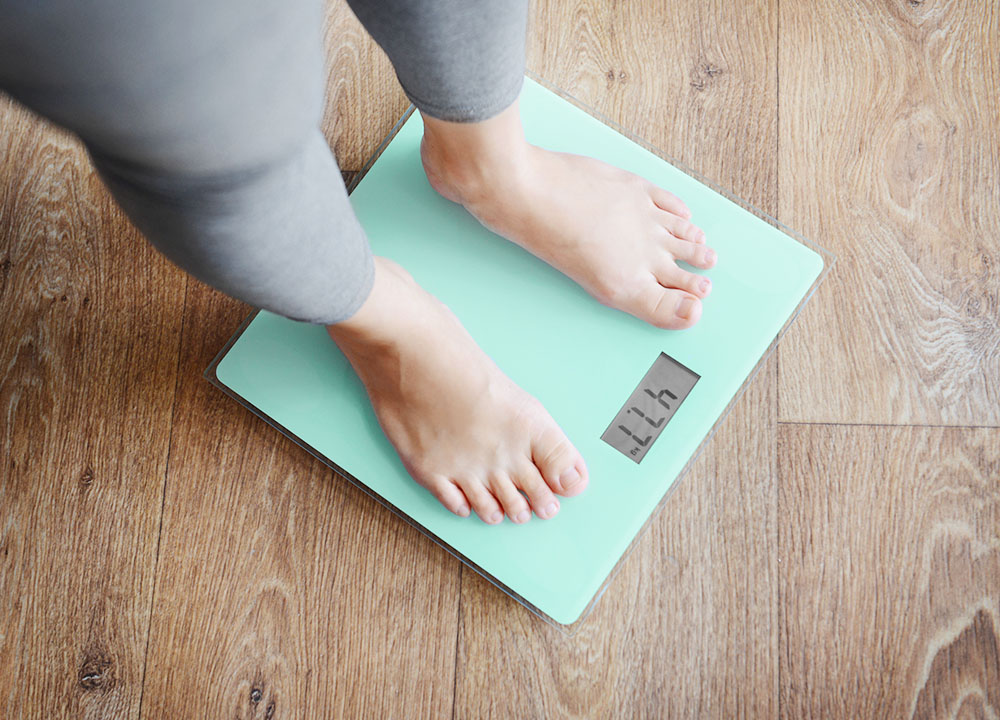Your relationship with your scale isn’t healthy.
It’s not about losing weight or gaining muscle, as fast as possible.
It’s your relationship with the number on the scale, a device that can be more misleading than it is insightful.
The scale can be a helpful tool if you know how to understand what it’s trying to tell you. But since most people including us are more likely to stress, obsess, and be confused by the number, even if we are fit, healthy, want to lose 10lbs, obese, or whatever other situation we might be in, the scale ends up being our enemy.
Scale weight should just be a piece of the puzzle to your body. It’s only data. Whether your goal is losing fat off your belly or packing on pounds of muscle to look like Hugh Jackman from Wolverine, the scale shouldn’t be your only way of measuring progress.
For many of us, the scale somehow became emotionally attached to us. Specific numbers either give us happiness or sadness depending on the day.
This emotional and psychological struggle we get from standing on the scale shouldn’t be the way it is.
In reality, the scale is a liar. Stand on it ten times throughout the day, and you’ll get ten different answers. The scale gives us more questions of “what happened” than answers we want.
Let’s take some time and look at the facts of how fat loss works and what the scale isn’t telling you.
When you step on the scale you’ll get a different number each time throughout the day. You get a small snapshot of what is happening in your body. The scale is subject to the amount of water you drink during the day and your output of sweat after a hard workout. Water intake and outtake can make your weight shift between 2-4lbs!
Your water and salt balance can shift your weight as well. Things that people don’t usually think about like mercury levels when they go up during spring and summer time your body uses a hormone called aldosterone to retain more fluid. This hormone is a survival mechanism to ensure your body stays hydrated during the warmer months.
Since we are on the topic of hormones, ladies, depending on where you are on your cycle has a HUGE influence on your weight. There could be a fluctuation anywhere from three to seven pounds during certain times of the month going through your cycle.
On top of all of this if you’re not taking in enough fluids your body will do everything in its power to hold on water and cause fluid retention which will inevitably cause the scale weight to go up.
Remember all those times you’d stress over your weight on the scale? There are thousands of studies that show a relationship between high-stress levels and weight gain.
Stress is also the number one primary cause of binge eating. Combine that with a horrible relationship you have with the scale, and you’re stuck in this vicious cycle. Stress increases your appetite to eat more than usual thus making your weight climb up the scale. With the increase of stressing over the scale, stress is directly related to the rise in cortisol production which has been linked to higher levels of fat on the body.
The scale can change with one single meal. For example, you’re following a healthy diet combined with exercise each week. As a treat, you go out to your favorite burger place and allow yourself a milkshake, a huge burger, and some fries. Not so bad right? Think again!
The increase in calories and extra carbs will tip the scale up leaving you angry and depressed. Every one gram of carbohydrate your body stores it also holds three grams of water. This little equation is the reason why people can drop weight so quickly when they cut carbs out of their diet. The weight eventually comes back when people start eating carbs again and doing little to no carbs is no way for someone to live long term so your weight will come back to where you first started without question.
It almost seems like your body will do everything to ensure you don’t lose weight. It’s true. Your body wants you to survive. Any disturbance to your regular day to day your body thinks your dying, and it will do everything in its power to have you live. This mechanism is one reason why fat loss is so difficult.
What do we suggest you do? Stop focusing on the scale and instead focus on measurements. A simple waist and hip measurement will tell you all you need to know if you’re on the right track. Weight will fluctuate, but measurements don’t lie.
Another easy method to track your progress is to grab a pair of jeans that don’t fit you and every 2-4 weeks try them on and see if they are getting closer to fitting perfectly. This trick helps to develop a better relationship with your body, weight, and finally breaking up with the scale that caused you so much pain in the past.









Leave A Comment